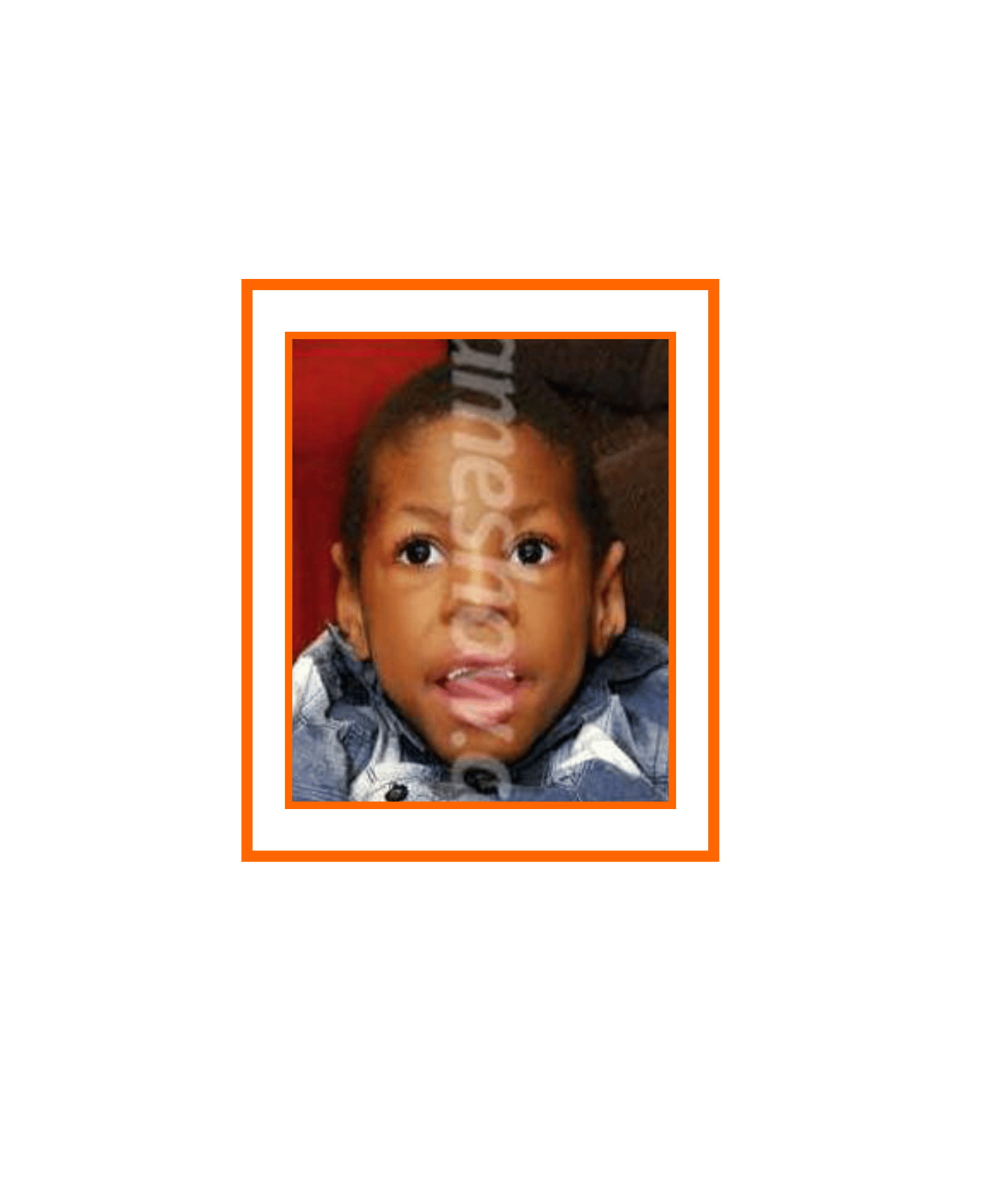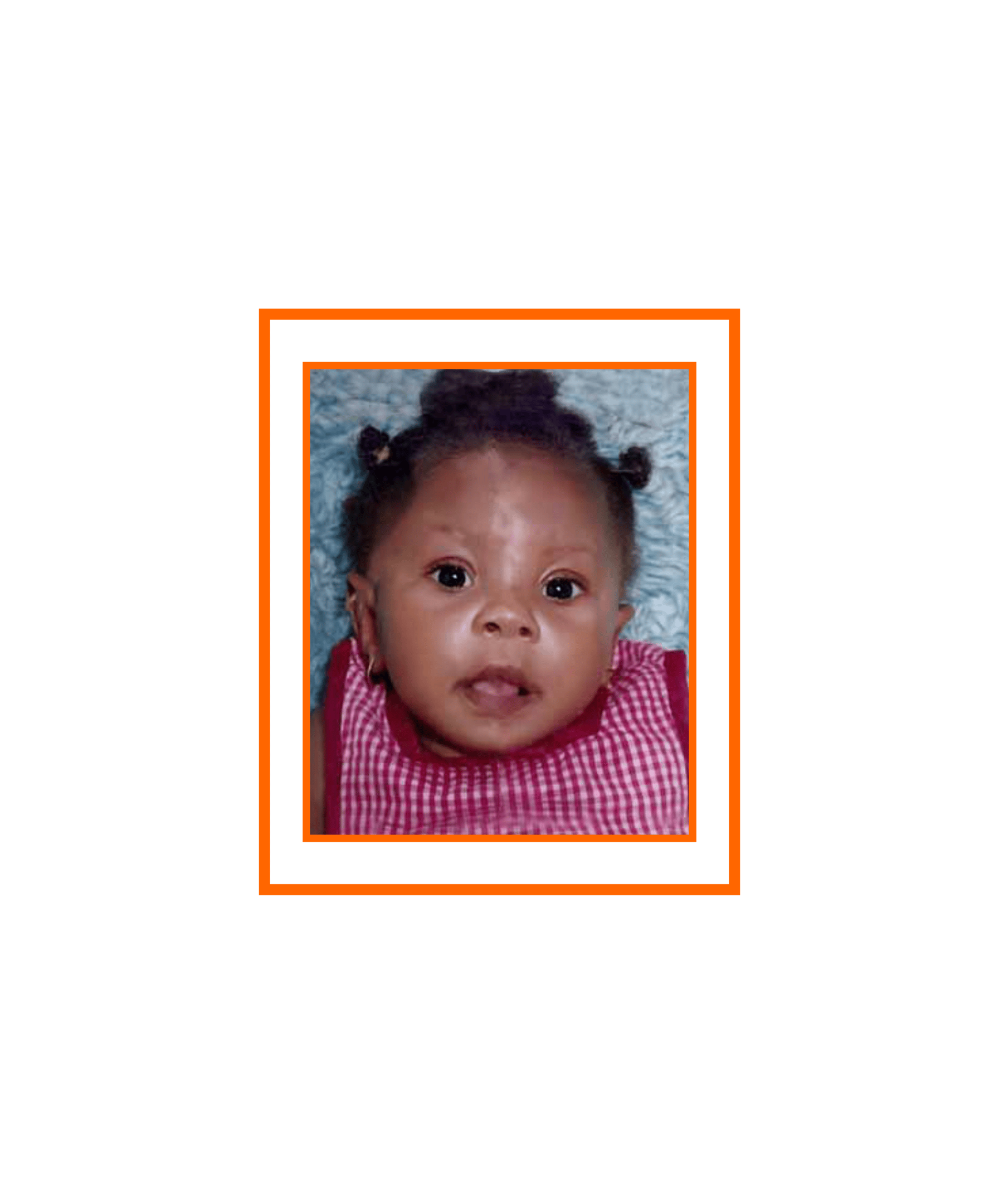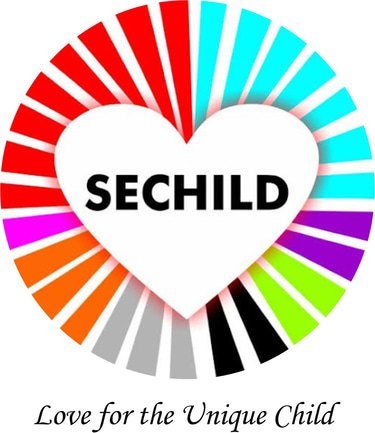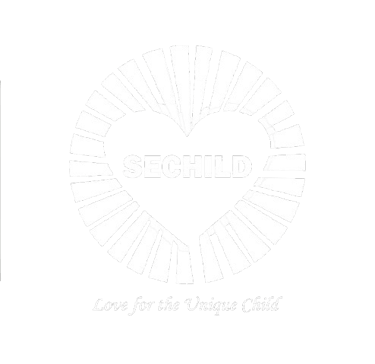The Sedoo Initiative for Children with Special Needs - SECHILD
was founded by Kawan and Aondofa, loving parents of two children, Sedoo, born in 2005, and Aondofa Jr, born in 2007, both of whom were diagnosed with cerebral palsy. Their story is not only one of immense love and devotion, but also of unimaginable challenges in a society where children with special needs are often misunderstood, marginalized, or neglected.




OUR STORY
At the time, cerebral palsy was scarcely understood in their community. Harmful myths and stigma shaped public perception. Children with cerebral palsy were often labeled as curses or spirits, and families were left to fend for themselves. There were no centers or facilities that would admit children like Sedoo and Aondofa. Schools refused them, caregivers were difficult to find, and professional support was simply out of reach.
At the time, cerebral palsy was scarcely understood in their community. Harmful myths and stigma shaped public perception. Children with cerebral palsy were often labeled as curses or spirits, and families were left to fend for themselves. There were no centers or facilities that would admit children like Sedoo and Aondofa. Schools refused them, caregivers were difficult to find, and professional support was simply out of reach.
Every day brought with it physical, emotional, and social hurdles, with little to no guidance on how to provide the level of care their children required. As a mother working full-time as a banker, Kawan struggled to balance work and caregiving. Their reality was exhausting, isolating, and painful.
And yet, they knew they could not be the only ones going through this.
In the midst of their struggle, they realized that many other families were likely suffering in silence, overwhelmed, unsupported, and filled with questions no one was answering. Rather than accept this as their fate, Kawan and Aondofa made a decision that would change lives: they would create the very support system they never had.
In January 2011, they founded the Sedoo Initiative for Children with Special Needs-SECHILD, named after their daughter, Sedoo, whose life and journey were their first encounter with cerebral palsy. Though she passed away in 2007, her memory became the foundation for something far greater: a place where children like her would be welcomed, nurtured, and given a chance to thrive.
To bring this vision to life, the SECHILD Center was established, a dedicated space for residential care, therapy, counseling, trainings and administration. It was designed not just as a facility, but as a home of hope for children with cerebral palsy, parents and caregivers.
The very first child ever admitted to the SECHILD Center was their son, Aondofa Jr.
He received the kind of care and therapy that had once been so hard to find, now under the roof of the very place his parents built from love and determination. Surrounded by other children, caregivers, and a supportive community, Aondofa Jr. lived his final years in a place made just for him.
In June 2014, while still being cared for at the center, Aondofa passed away peacefully. His life and his presence in the center solidified SECHILD’s mission, not just as an organization, but as a living legacy to both Sedoo and Aondofa.
SECHILD was created to be what they never had, a care system built around compassion, understanding, and dignity.
Today, the SECHILD Center continues that mission, serving as both a residential care home for children with cerebral palsy and the administrative hub of the organization.
It provides:
Specialized therapy
Daily care and nutrition
Inclusive learning and play
Counseling and support for families and caregivers
Community advocacy and education
What began as one family’s journey through pain and perseverance has now become a lifeline for many others, a growing community that refuses to let children with cerebral palsy be forgotten or misunderstood.
Every child welcomed through our doors carries forward the legacy of Sedoo and Aondofa Jr. Their lives gave birth to a movement, one rooted in dignity, built on love, and powered by the belief that every child deserves a chance to live fully, joyfully, and without shame.
At the time, cerebral palsy was scarcely understood in their community. Harmful myths and stigma shaped public perception. Children with cerebral palsy were often labeled as curses or spirits, and families were left to fend for themselves. There were no centers or facilities that would admit children like Sedoo and Aondofa. Schools refused them, caregivers were difficult to find, and professional support was simply out of reach.
At the time, cerebral palsy was scarcely understood in their community. Harmful myths and stigma shaped public perception. Children with cerebral palsy were often labeled as curses or spirits, and families were left to fend for themselves. There were no centers or facilities that would admit children like Sedoo and Aondofa. Schools refused them, caregivers were difficult to find, and professional support was simply out of reach.
SECHILD
SECHILD Center, Plot 4, Light Gold Estate, Phase 4, Lugbe, FCT, Abuja.
Navigations
© 2025 SECHILD Foundation. All Rights Reserved. Designed by KING JUDE
Get Involved
Newsletter


